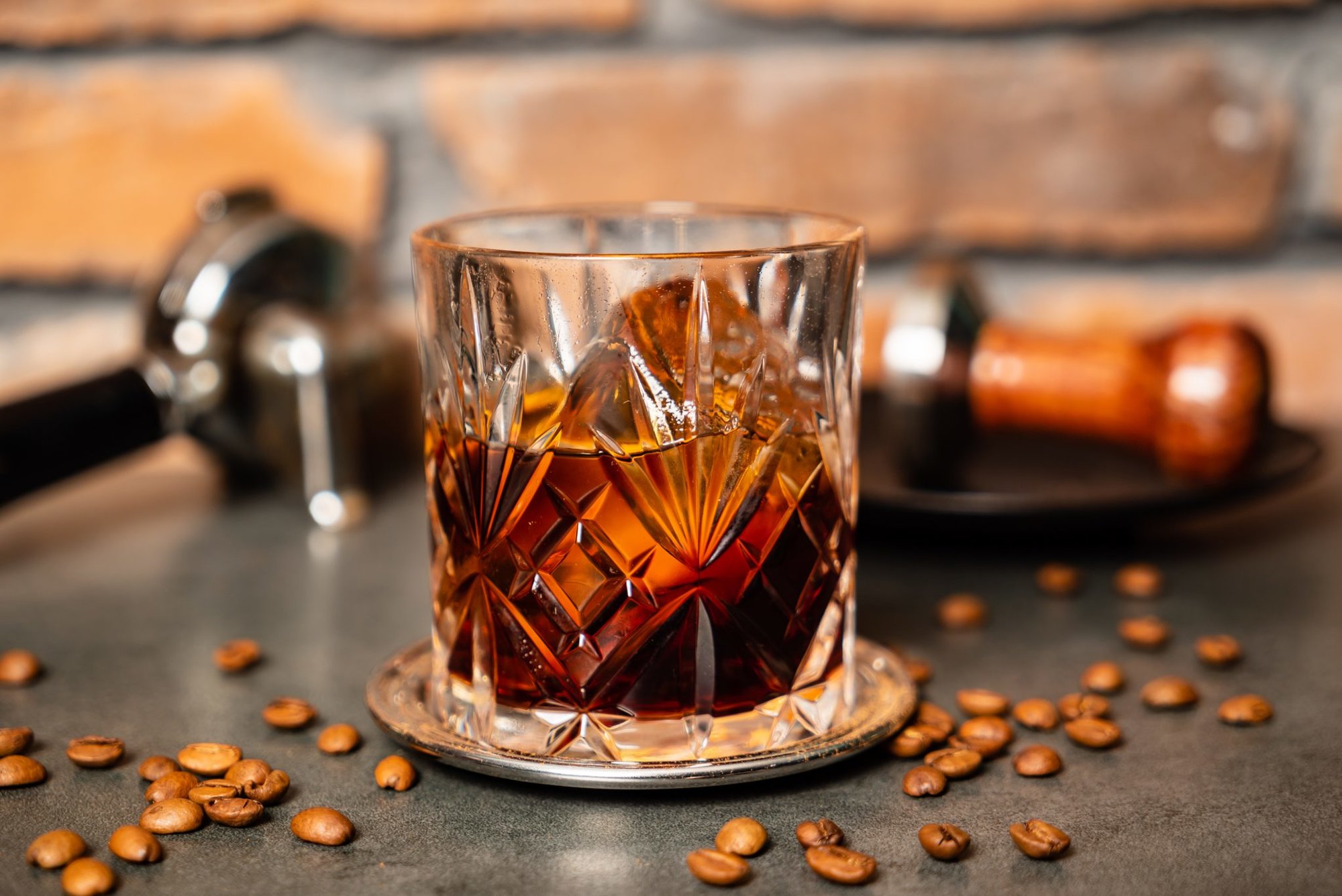Coffee Cocktails Are All the Rage, but Is Mixing Alcohol and Caffeine Actually Safe?

Old fashioned coffee cocktail. Adobe Stock photo.
We’ve been enjoying the most wonderful time of the year — festive holiday feasts filled with glazed hams, our favorite creamy side dishes, and to top it off, a decadent dessert. And we’ve become accustomed to enjoying our after-dinner celebration with a coffee, something to give us a little pick-me-up after such a filling meal. However, in recent times, popular coffee beverages often come with a delightful, extra ingredient — alcohol. Whether you opt for a traditional Irish coffee or something a bit classier such as an espresso martini, when it comes to coffee cocktails there is something for everyone.
Although these beverages are undeniably delicious, especially this time of year, it is a bit of an interesting combination. Caffeine is by definition a stimulant, whereas alcohol is a depressant: two opposite reactions happening all at once in our central nervous system. It’s safe to assume consuming the two is relatively safe in moderation, but is mixing alcohol and caffeine actually a good idea?
A few months back, we explored the effects caffeine has on the brain, specifically related to adenosine, a chemical that when released, causes feelings of drowsiness and fatigue. Alcohol causes more adenosine to build up, which is why we tend to get a little sleepy after only a couple of drinks. Caffeine disguises the effects alcohol typically has on our bodies, making us feel more alert and therefore less drunk. This trickery on our brains can be dangerous, as it can lead to drinking higher levels of alcohol in one sitting, increasing the potential for blackouts and unruly hangovers. If done frequently, this can result in possible long-term medical issues.
Despite the two causing complete opposite reactions in the human body, consuming both alcohol and caffeine together does not “cancel the other one out.” The coffee cocktail may reduce the brain’s deployment of adenosine, but it won’t enhance mental control or motor skills.
Another major organ to consider when combining the two is your heart. As mentioned, caffeinated beverages such as coffee act as a stimulant, speeding up our heart rate, as well as increasing blood pressure. Although alcohol tends to slow us down, physically and mentally, it actually increases our heart rate similar to caffeine. Combining the two, especially if a person has a preexisting heart condition, can cause major disruptions to the cardiovascular system.
Perhaps the most compelling reason not to overindulge in caffeinated cocktails is that bingeing makes you more likely to do something you’ll regret. A few drinks can already hinder our judgment, but adding caffeine to the mix may increase the likelihood of an unfortunate event, such as texting that ex you know you shouldn’t contact — or something much more serious like getting behind the wheel while intoxicated. As caffeine tricks us into thinking we’re not as drunk as we are, the potential of drinking beyond our limitations for a longer time becomes more likely, as does turning a night out with friends into a complete disaster.
The bottom line is that although alcoholic coffee drinks do not seem to pose as many risks as energy drink cocktails (for the love of God, put down that Red Bull and vodka), the combination of caffeine and alcohol isn’t one to abuse. We’ve come a long way since the days of Four Loko, but to be safe, enjoy your after-dinner coffee cocktails in moderation.

BRCC and Bad Moon Print Press team up for an exclusive, limited-edition T-shirt design!
BRCC partners with Team Room Design for an exclusive T-shirt release!
Thirty Seconds Out has partnered with BRCC for an exclusive shirt design invoking the God of Winter.
Lucas O'Hara of Grizzly Forge has teamed up with BRCC for a badass, exclusive Shirt Club T-shirt design featuring his most popular knife and tiomahawk.
Coffee or Die sits down with one of the graphic designers behind Black Rifle Coffee's signature look and vibe.
Biden will award the Medal of Honor to a Vietnam War Army helicopter pilot who risked his life to save a reconnaissance team from almost certain death.
Ever wonder how much Jack Mandaville would f*ck sh*t up if he went back in time? The American Revolution didn't even see him coming.
A nearly 200-year-old West Point time capsule that at first appeared to yield little more than dust contains hidden treasure, the US Military Academy said.












